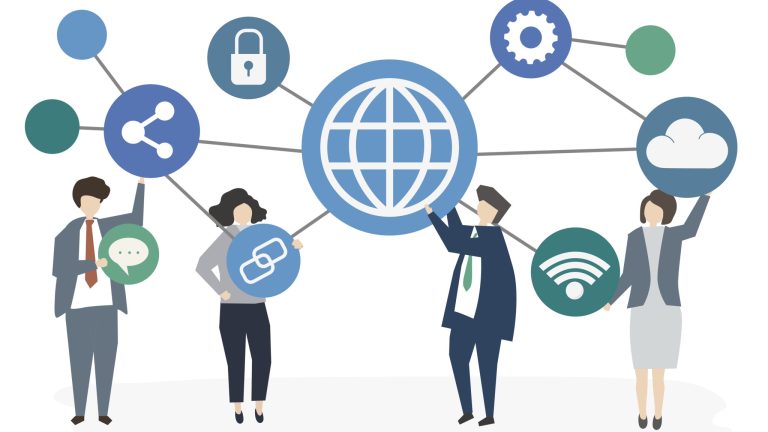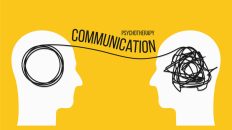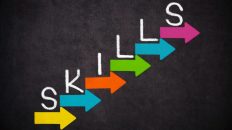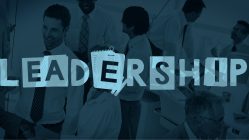Many times, you must have heard that candidates with strong soft skills are in high demand and wondered what soft skills are and why are they so important? We live in a highly advanced and competitive world where thousands of candidates have a similar academic and professional background and so soft skills are the ‘desired’ personality traits and behaviour that many employers look for in a candidate and his/her human resources. First, let me clarify- how hard skills are different from soft skills? Although both are valuable and required by employers, hard skills are job-specific skills that can be acquired by attending colleges, training programs, or even through on-the-job training and learning whereas soft skills are character traits and interpersonal skills that enable us to interact productively and harmoniously with other people. Soft skills are mainly intangible and non-technical abilities that comprise personal attributes, communication skills, and personality traits which give you a competitive edge with a similar hard skill set in the company and life as well. Sometimes referred to as transferrable skills, interpersonal skills, people skills, social skills, or meta-skills soft skills are difficult to learn, measure, and evaluate. Let’s take a closer look at the 10 essential interpersonal skills you need to acquire in today’s business scenario:-
Communication skills- Effective communication skills are pre requisite in almost every job. It is one of the most important social skills. Successful communication involves:-
- Verbal communication- One should be able to speak clearly, precisely, and politely with clients, colleagues, employers, vendors, media, or any government officers in person, by phone, and in writing text messages, reports, and other types of official documents.
- Non-verbal communication- A good communicator transmits the message through positive non-verbal platforms such as facial expressions, gestures, paralinguistic like the tone of voice, body language, proxemics, eye gaze, appearances, and touch.
- Visual communication- It is a compelling practice to combine data visualization and graphic designs like animated GIFs, screenshots, videos, pie charts, infographics, and slide deck presentations to convey a message, enthuse change and induce emotions.
- Finally, Active listening: – It is considered as an essence of meta-skills as it concentrates on what is being said than just passively hearing.
Interpersonal skills- Often referred to as ‘People’s skills’ Interpersonal skills are the behaviour and tactics required to constructively communicate, interact and collaborate with other people, both individually and in groups. A few of the most efficacious Interpersonal skills examples that will make employees better at work are:-
- Emotional intelligence- the capability to perceive, manage and regulate emotions;
- Negotiations- a formal discussion between two or more parties to resolve an issue to reach a beneficial outcome;
- Empathy- the capacity to emotionally understand another person’s feelings;
- Relationship management- strategies to build and maintain client support for business;
- Collaboration- an act of working together, especially on a goal or shared project;
- Conflict management- a technique to identify and handle conflicts sagaciously, practically, and efficaciously
Leadership skills- As aptly said by Warren Bennis, “Leaders are people who believe so passionately, that they can seduce other people into sharing their dreams.” Effective leadership will inspire people, motivate them to raise their performance level, improve employee morale, develop and sustain employee engagement, build a culture of mutual trust, respect, and support, bring out others’ self-confidence, embrace a multi-faceted approach to innovation and create a winning organizational culture that will attract and retain top talent.
Teamwork- Teamwork is the ability to communicate well and attentively listen to others to work fruitfully during presentations, projects, professional conversations, or meetings to achieve a shared goal or outcome effectively. Teamwork fosters idea generation, creativity, employee morale, risk-taking ability, and learning skills which in turn relieves stress and brings better output towards a common vision. Teamwork embraces the ability to deal with office politics, different personalities, challenging situations, inter/intra group conflicts, negative feedback from others, and appreciating the diversities in a department. In a team, each member is unique and can provide different solutions for problem-solving and completing difficult assignments. Teamwork always works.
Creativity- The latest research conducted by LinkedIn revealed that creativity is the most in-demand soft skill companies’ need in 2020. Yes, you read it right. So what is creative thinking? Creative skills just aren’t for artists, musicians, or poets but can be used in any role, in any department at any level. Creative Thinking is the ability to look at a problem or a task differently and use imagination to find new ways of solving problems. Creative Thinking engages lateral thinking, i.e. the quality to think outside the box. It is the propensity to perceive patterns that are not obvious in a way to solve problems, resolve conflicts, carry out tasks, manage change, improve processes, find ways to perform tasks, discover new paths to explore the business and face challenges of the ever-changing business world.
Teamwork is the ability to communicate well and attentively listen to others to work fruitfully during presentations, projects, professional conversations, or meetings to achieve a shared goal or outcome effectively. Teamwork fosters idea generation, creativity, employee morale, risk-taking ability, and learning skills which in turn relieves stress and brings better output towards a common vision.
Problem-solving skills- Problem solvers can scrutinize and take actions when problems arise which demonstrates their competencies like logical thinking, creativity, resilience, imagination, lateral thinking, and fortitude. Employers value problem-solving and critical thinking skills more than ever before since it helps not just individuals but also teams and departments to adeptly diagnose problems, analyze them, identify possible solutions based on knowledge, facts, and available data, access the impact of alternative solutions and implement the most suitable solution in a timely fashion.
Time management- ‘Time Management’ is the process of planning, organizing, and making decisions on how to divide our time between specific activities to stay on task, boost productivity, reduce stress, and improve work-life balance.
- Prioritize to work smart and stay focused on ‘most important task’.
- Manage distractions to protect your flow and to stay focused.
- Time block your task to avoid performing a single task for the entire day.
- Use the SMART (Specific, Measurable, Attainable, Relevant, and Timely) technique when setting goals.
- Set boundaries for yourself and learn to say ‘No’ more often to people.
- De-procrastinate to finish your work on time and use the extra time for your hobbies, family, or friends.
- Trace your progress once a day to reach your goals more quickly.
- Take short breaks, go for a quick walk, meditate, or take a short nap once in a few hours.
These are just a few of the top tips for managing time for workplace success.
Flexibility/adaptability- The only constant in life is change. Flexibility skills focus on an ability and willingness to embrace new tasks, adjust to new technological trends, meet ever-changing customer needs, adapt to novel situations to fit changed circumstances or overcome unexpected obstacles. I am sure we always wanted to become more flexible at work but never knew how? These flexibility building methods will not just help you manage change but boost your chances of succeeding too:-
- Decide your core values and stick to them.
- Become more open-minded to consider different perspectives, values, opinions, and beliefs.
- Keep updated about the major trends and latest news in the industry.
- Become a continuous learner by regularly upgrading your skills and enhancing your knowledge and competencies.
- Look at the brighter side by accepting that changes are inevitable can provide you with a challenging but rewarding experience.
- Accept failures, learn from them and grow.
- Be proactive by anticipating problems, seeking new solutions, and giving your best every time.
- Seek feedback as a part of performance reviews.
Employees with a flexible attitude customize their efforts to meet the company’s objectives.
Self-motivation- We often meet employees who do things without being influenced by external factors like money, recognition, fame, or praise and wondered why and how? Simply because they are internally motivated. Intrinsic or internal motivation guides individuals to persevere even during setbacks/ failures to accept opportunities and continue their endevour to what they want to achieve. It is the force that leads them to achieve their desired results because of personal satisfaction, desire, the feeling of accomplishment, sense of enjoyment, or for achieving excellence. If you want to find out whether you are a self-motivated employee or not ask yourself a simple question- What two things motivate you at the organization?
If your answers are:-
- Added responsibility
- Feeling of accomplishment
- Recognition as a valuable asset
- Work satisfaction
- Learning new skills
- Beating not just meeting deadlines
- Mentoring others
- Suggesting innovative ideas
- Accepting challenging task
Then certainly, you are internally motivated. You have an inner drive to pursue goals and achieve your targets simply because you want to and not because someone else told you to. If you are an externally motivated person please don’t worry. Through any holistic approach, you can bridge the gap between extrinsic and intrinsic motivation.
Work ethics- Work Ethics refers to a certain code of conduct, dynamic set of values, and fundamental principles that an employee should practice to become a key asset for the organization. Below mentioned strong work ethics skills can make a huge difference to your productivity output at work and create a great impression of a highly desirable team player and a commendable employee:-
- Adhering to the company’s rules, regulations, and core values
- Dedication to the job without getting distracted.
- Discipline to meet or exceed expectations.
- Striving for opportunities to learn new things.
- Developing professional relationships that foster teamwork and improve productivity.
- Accepting responsibility for failure and proactively working to fix the error.
- Maintaining professionalism in the way you dress, speak and carry yourself.
- Willingness to become more personally accountable to accept the consequences for your actions.
- Being honest without the intention of lying, cheating, or disclosing misleading information.
- Showing discipline that ensures that all projects are executed in a timely organized manner.
- Treating everyone (yes, even juniors or interns) with respect and dignity.
These are the 10 most sought after human skills that help the employee succeed in the corporate world.
Trivia- Ideally, employers don’t directly ask whether you have people skills. Instead, they give them a situation and check how they respond to assess their soft skills.
























